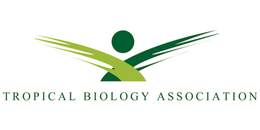Last October, TROPIBIO teamed up with the Tropical Biology Association (TBA) embarking on a journey to Guinea Bissau with the mission to train the next generation of conservationists from Lusophone Africa (Angola, Cape Verde, Guinea Bissau, Mozambique, São Tomé and Príncipe), Portugal and Spain. Drawing from TBA’s extensive expertise in delivering impactful training programs for early-career individuals across Africa and Asia, the field course aimed at enhancing scientific capacity in tropical ecology and conservation while fostering cultural exchange. Notably, this marked the first TBA course ever exclusively conducted in Portuguese.

© Mohamed Henriques
Spanning two weeks from October 14 to 27, 2023, the field course took place in Djalicunda, Guinea Bissau, with logistical support from our local partner, the KAFO Federation, a grassroots farmers’ organization. The KAFO farmer center served as an ideal field station, nested amidst community forests and agricultural fields. During the training, a diverse group of 21 undergraduate and graduate students, mostly from Portuguese-speaking African countries, immersed themselves in lectures and workshops covering the ecology of different habitats and species, alongside hands-on training in bird and insect survey techniques. The training was led by local and international experts in tropical biodiversity, including TROPIBIO former post-doc researcher Ana Filipa Palmeirim and field technician Patrícia Guedes. Throughout the course, participants engaged in discussions around real-world conservation problems, sharing insights on challenges within each of their countries. Additionally, the program featured sessions focused on exploring career pathways in conservation and providing participants with the opportunity to expand their professional networks. During community visits, the students could witness firsthand how KAFO promotes livelihoods while safeguarding ecosystems at a local level.

© Patrícia Guedes
In the second phase of the course, participants had the chance to apply their newly acquired knowledge in practical group projects, addressing diverse conservation issues – from developing research questions to defining survey methodologies and executing field work. Projects delved into various social-ecological topics, including the effects of human activity on ant communities, bird habitat use, ecosystem services within cashew plantations, wild fruit preferences, cicada behavior, species diversity in community-managed forests, and the link between food availability and gecko abundance in agricultural settings. The fruitful outcomes of the projects were shared in a presentation attended by national authorities and featured on a national news channel - highlighting the success and significance of this field course in shaping future tropical conservationists from Lusophone countries.




